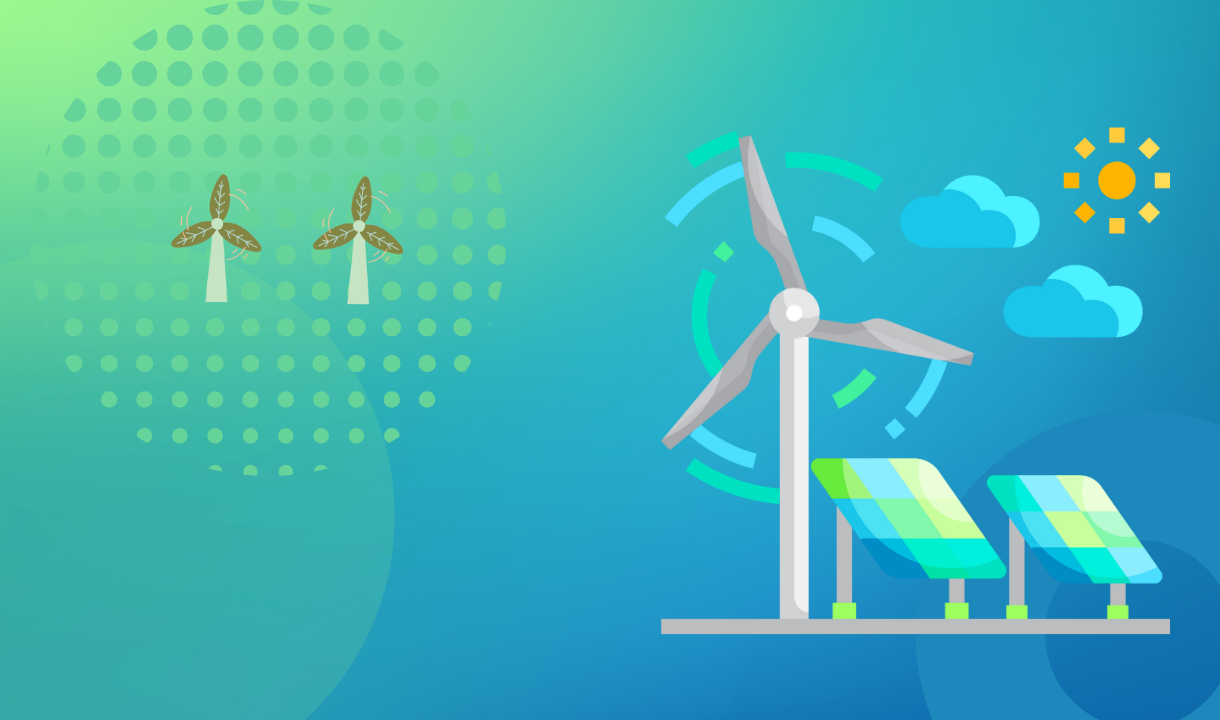Towven.com – In a world where climate change concerns loom large, the push for renewable energy has become more urgent than ever.
As we stand on the precipice of a new era, it’s crucial to understand the progress made and the challenges that lie ahead in the renewable energy revolution. So, let’s delve into the current landscape of renewable energy in 2024.
The Rise of Renewable Energy
Renewable energy sources, such as solar, wind, hydroelectric, biomass, and geothermal, have witnessed a remarkable surge in adoption globally.
Governments, businesses, and individuals are increasingly recognizing the importance of transitioning towards sustainable energy sources to mitigate climate change and reduce dependency on finite fossil fuels.
Here are some key aspects of this phenomenon:
1. Advancements in Technology
Technological advancements have played a crucial role in making renewable energy sources such as solar, wind, hydro, and geothermal more efficient and cost-effective.
Innovations in materials, manufacturing processes, and energy storage have significantly lowered the costs associated with renewable energy generation.
2. Environmental Concerns
Growing awareness of climate change and the environmental impacts of fossil fuel consumption has driven a global shift towards renewable energy.
Governments, businesses, and individuals are increasingly recognizing the importance of reducing greenhouse gas emissions and mitigating climate change, leading to greater investment in renewable energy infrastructure.
3. Policy Support
Many governments around the world have implemented supportive policies and incentives to encourage the adoption of renewable energy.
These may include feed-in tariffs, tax credits, renewable portfolio standards, and subsidies for research and development.
Policy certainty and long-term commitments have helped create a favorable investment environment for renewable energy projects.
4. Economic Viability
As the costs of renewable energy technologies have declined, they have become increasingly competitive with traditional fossil fuels.
In many regions, renewable energy sources are now the cheapest option for new electricity generation capacity.
This economic competitiveness has further accelerated the deployment of renewable energy projects worldwide.
5. Energy Independence and Security
Investing in renewable energy sources can enhance energy independence by reducing reliance on imported fossil fuels.
This can have geopolitical implications by decreasing vulnerability to supply disruptions and price fluctuations in global energy markets.
6. Job Creation and Economic Growth
The renewable energy sector has become a significant source of employment and economic growth in many countries.
Jobs in renewable energy span a wide range of skill levels and sectors, including manufacturing, construction, installation, operation, and maintenance.
7. Grid Integration and Energy Storage
Integrating intermittent renewable energy sources into the electricity grid requires advancements in grid infrastructure and energy storage technologies.
Innovations in grid management systems, smart grid technologies, and energy storage solutions are essential for ensuring the reliability and stability of renewable energy systems.
8. Community and Distributed Generation
Renewable energy technologies enable decentralized energy production, allowing communities, businesses, and individuals to generate their own electricity.
This distributed generation model can enhance energy resilience, empower local communities, and reduce transmission losses associated with centralized power generation.
Overall, the rise of renewable energy represents a fundamental transition towards a more sustainable, resilient, and low-carbon energy future.
Continued investment in research, technology development, policy support, and infrastructure will be essential for maximizing the potential of renewable energy and addressing the challenges of climate change.
Solar Power: Harnessing the Energy of the Sun
Solar power continues to lead the charge in renewable energy adoption. With advancements in photovoltaic technology, solar panels have become more efficient and affordable.
From rooftop installations to massive solar farms, harnessing the sun’s energy has become more accessible and widespread.
- Photovoltaic (PV) Systems: Photovoltaic systems convert sunlight directly into electricity using solar cells made of semiconductor materials such as silicon. When sunlight strikes the solar cells, it excites electrons, creating an electric current. PV systems can be installed on rooftops, integrated into building materials, or deployed in large-scale solar farms. They are widely used in both residential and commercial applications.
- Solar Thermal Systems: Solar thermal systems capture sunlight to produce heat, which can then be used directly for heating water or buildings, or converted into electricity through steam turbines. There are several types of solar thermal systems:
- Flat Plate Collectors: These systems consist of a flat, dark-colored surface that absorbs sunlight and transfers the heat to a fluid flowing through pipes. The heated fluid is then used for various purposes, such as heating water for domestic or industrial use.
- Concentrated Solar Power (CSP): CSP systems use mirrors or lenses to concentrate sunlight onto a small area, heating a fluid to produce steam that drives a turbine connected to an electricity generator. CSP is often used in utility-scale power plants due to its ability to generate large amounts of electricity.
Benefits of Solar Power:
- Renewable and Sustainable: Solar power relies on the sun, which is expected to shine for billions of years, making it an inexhaustible source of energy.
- Environmentally Friendly: Solar power generation produces minimal greenhouse gas emissions and pollution compared to fossil fuels, reducing the impact on the environment and mitigating climate change.
- Low Operating Costs: Once installed, solar power systems have low operating and maintenance costs, leading to long-term savings on energy bills.
- Energy Independence: Solar power reduces dependence on fossil fuels, promoting energy security and independence for individuals, communities, and nations.
Challenges of Solar Power:
- Intermittency: Solar power generation is dependent on sunlight, making it intermittent and less predictable, requiring energy storage or backup power systems for continuous supply.
- High Initial Costs: While solar technology costs have decreased significantly over the years, the initial investment for solar power systems can still be relatively high, although it pays off over time through energy savings.
- Land Use: Large-scale solar farms require significant land area, which can lead to conflicts over land use and environmental concerns, such as habitat disruption.
Despite these challenges, the rapidly advancing technology, coupled with supportive policies and incentives, continues to drive the adoption of solar power worldwide, contributing to a cleaner, more sustainable energy future.
Wind Energy: Riding the Winds of Change
Wind energy has also seen significant growth, with wind turbines dotting landscapes around the world.
Harnessing the power of the wind, wind farms generate electricity without emitting greenhouse gases or depleting natural resources.
As technology improves, wind turbines become more efficient and capable of generating larger amounts of clean energy.
Hydroelectricity: Tapping into Water’s Power
Hydroelectric power plants utilize the flow of water to generate electricity. By damming rivers and creating reservoirs, hydroelectricity provides a reliable source of renewable energy.
However, concerns regarding environmental impacts and habitat disruption require careful consideration in the development of hydroelectric projects.
Biomass Energy: Turning Waste into Power
Biomass energy involves the conversion of organic materials, such as agricultural waste and wood pellets, into usable energy sources.
This process not only reduces waste but also provides a renewable alternative to fossil fuels. However, the sustainability of biomass energy depends on responsible sourcing and management of biomass feedstocks.
Geothermal Energy: Utilizing Earth’s Heat
Geothermal energy taps into the heat stored beneath the Earth’s surface. By harnessing steam or hot water from geothermal reservoirs, power plants can generate electricity consistently.
While geothermal energy production emits low levels of greenhouse gases, the location-specific nature of geothermal resources poses challenges for widespread adoption.
Progress in Energy Storage
One of the key challenges in renewable energy integration is the intermittent nature of sources like solar and wind.
However, advancements in energy storage technologies, such as batteries and pumped hydro storage, are enhancing grid stability and enabling greater utilization of renewable energy resources.
Challenges in Renewable Energy Adoption
Despite the progress, several challenges hinder the widespread adoption of renewable energy.
1. Policy and Regulation
Inconsistent policies and regulations create uncertainties for investors and developers in the renewable energy sector.
Clear and supportive policy frameworks are essential to incentivize investment and facilitate the transition towards renewable energy.
2. Economic Viability
While the costs of renewable energy technologies have declined significantly, upfront investment costs remain a barrier for some.
Continued financial support and incentives are necessary to make renewable energy more economically viable, especially in developing regions.
3. Technological Innovation
Ongoing research and development are crucial for driving further advancements in renewable energy technologies.
Breakthroughs in areas such as energy efficiency, storage, and grid integration will accelerate the transition to a renewable energy future.
4. Environmental Concerns
Despite their green credentials, renewable energy projects can still have environmental impacts. From habitat disruption to land use conflicts, mitigating these concerns requires careful planning and stakeholder engagement.
Conclusion
The renewable energy revolution is well underway, with significant progress made in harnessing clean and sustainable sources of power.
However, challenges persist, requiring concerted efforts from governments, businesses, and communities to overcome.
By addressing policy gaps, driving innovation, and prioritizing environmental sustainability, we can usher in a brighter, greener future powered by renewable energy.
FAQs
Q1: Are renewable energy sources reliable?
A: Yes, renewable energy sources can be reliable, but their reliability may vary depending on factors such as weather conditions and geographical location.
Q2: How do renewable energy projects benefit the economy?
A: Renewable energy projects create jobs, attract investment, and reduce reliance on imported fossil fuels, contributing to economic growth and energy security.
Q3: What role do governments play in promoting renewable energy?
A: Governments play a crucial role in setting renewable energy targets, providing incentives, and implementing supportive policies to encourage investment and adoption of renewable energy technologies.
Q4: Are there any downsides to renewable energy?
A: While renewable energy offers numerous benefits, challenges such as intermittency, land use conflicts, and environmental impacts must be addressed through careful planning and mitigation measures.
Q5: Can individuals contribute to the renewable energy revolution?
A: Yes, individuals can contribute by adopting energy-efficient practices, investing in renewable energy technologies like solar panels, and advocating for supportive policies at the local and national levels.
The renewable energy revolution presents both opportunities and challenges as we strive to transition to a more sustainable energy future. By addressing these challenges head-on and embracing innovative solutions, we can pave the way for a cleaner, greener planet for generations to come.







